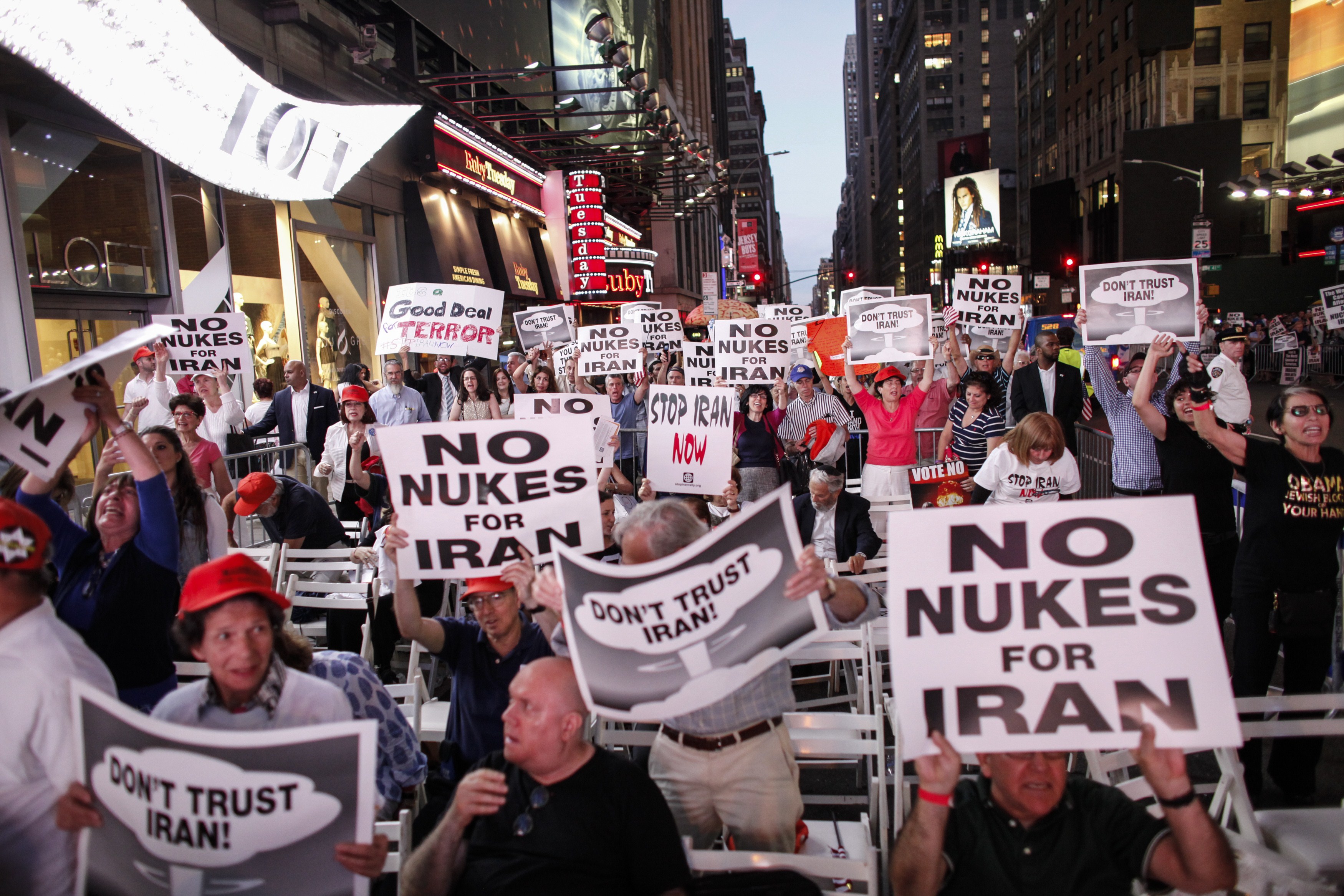The daunting math for opponents of the Iran nuclear deal


A free daily email with the biggest news stories of the day – and the best features from TheWeek.com
You are now subscribed
Your newsletter sign-up was successful
Sometime in the next three weeks, Republicans in Congress will attempt to pass a resolution disapproving of the Iran nuclear deal the Obama White House negotiated with five other world powers and Tehran. If they succeed, they will then have to override Obama's veto, which requires two-thirds of both the House and Senate. The odds aren't in their favor, as The New York Times notes. Here are some of the pertinent numbers:
5 — Percent of 2,566 presidential vetoes Congress has managed to override
110 — Times Congress has overridden a presidential veto, starting in 1845
The Week
Escape your echo chamber. Get the facts behind the news, plus analysis from multiple perspectives.

Sign up for The Week's Free Newsletters
From our morning news briefing to a weekly Good News Newsletter, get the best of The Week delivered directly to your inbox.
From our morning news briefing to a weekly Good News Newsletter, get the best of The Week delivered directly to your inbox.
15 — Unsuccessful vetoes issued by President Andrew Johnson
12 — Vetoes overridden for Presidents Harry Truman and Gerald Ford
60 — Senate votes needed to send the anti–Iran deal bill to Obama's desk
56 — Senators currently expected to vote for that bill, including 2 Democrats
A free daily email with the biggest news stories of the day – and the best features from TheWeek.com
67 — Senate votes needed to override Obama's promised veto
34 — Senate votes needed to sustain Obama's veto
29 — Senators who support Iran deal, pledge to oppose bill to sink it
290 — House votes needed to override Obama's promised veto
1973 — Last time Congress overrode a significant veto on foreign policy
Opponents of the Iran deal have some helpful numbers on their own side: Tens of millions of dollars being spent by allied lobbying groups to persuade on-the-fence Democrats to vote against the nuclear deal. The problem, as The New York Times' Carl Hulse concludes, is that "overcoming a presidential veto remains one of the toughest challenges in Washington."
Peter has worked as a news and culture writer and editor at The Week since the site's launch in 2008. He covers politics, world affairs, religion and cultural currents. His journalism career began as a copy editor at a financial newswire and has included editorial positions at The New York Times Magazine, Facts on File, and Oregon State University.
-
 ‘Restaurateurs have become millionaires’
‘Restaurateurs have become millionaires’Instant Opinion Opinion, comment and editorials of the day
-
 Earth is rapidly approaching a ‘hothouse’ trajectory of warming
Earth is rapidly approaching a ‘hothouse’ trajectory of warmingThe explainer It may become impossible to fix
-
 Health insurance: Premiums soar as ACA subsidies end
Health insurance: Premiums soar as ACA subsidies endFeature 1.4 million people have dropped coverage
-
 British warship repels 'largest Houthi attack to date' in the Red Sea
British warship repels 'largest Houthi attack to date' in the Red SeaSpeed read Western allies warn of military response to Iranian-backed Yemeni rebels if attacks on ships continue
-
 Houthi rebels claim Red Sea ship attacks
Houthi rebels claim Red Sea ship attacksspeed read Iran-backed Yemeni group vows to escalate aggression towards Israel-linked vessels in revenge for Gaza war
-
 Israel plans next phase of Gaza war as first hostages released
Israel plans next phase of Gaza war as first hostages releasedSpeed read After four-day ceasefire 'we will not stop' until destruction of Hamas, says Israel
-
 Mob storms Russian airport 'looking for Jews'
Mob storms Russian airport 'looking for Jews'Speed Read Plane from Israel surrounded by rioters chanting antisemitic slogans after landing in Russia's Dagestan region
-
 Tuberville's military promotions block is upending lives, combat readiness, 3 military branch chiefs say
Tuberville's military promotions block is upending lives, combat readiness, 3 military branch chiefs saySpeed Read
-
 Ukraine's counteroffensive is making incremental gains. Does it matter in the broader war?
Ukraine's counteroffensive is making incremental gains. Does it matter in the broader war?Speed Read
-
 US commissions first-ever Navy ship in a foreign port
US commissions first-ever Navy ship in a foreign portSpeed Read
-
 British spy chief, Wagner video suggest Prigozhin is alive and freely 'floating around'
British spy chief, Wagner video suggest Prigozhin is alive and freely 'floating around'Speed Read
